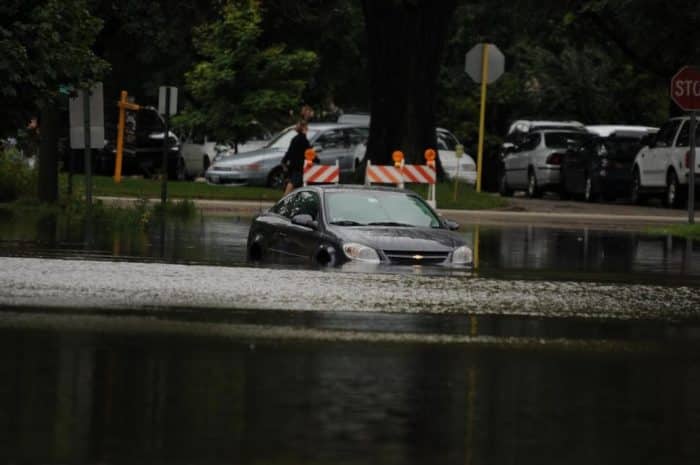In 2020 the United States saw a record number of devastating natural disasters, from raging wildfires to disastrous earthquakes and large hurricanes – not to mention the global pandemic. These natural disasters are known to cause havoc in our lives and in the lives of our loved ones. In the best-case scenarios, there are no fatalities or major injuries and all we’re dealing with is a few hours of yard clean-up.


For the majority of you who have recently experienced a major natural disaster and have come out unscathed, you’re still dealing with some major wreckage and damage to your home and property. The few hours of yard clean-up turn into major remodeling and days of fixing up your home – you may even need to replace your vehicle if it was badly damaged in the storm.
All of this costs money. Around $37 billion in damage from Hurricane Harvey, in 2017, alone, and about 70% of the damages aren’t even covered by insurance companies. This leaves homeowners responsible for the bulk of the costs – most of whom don’t have an extra $10-$50,000 just lying around.
If you don’t have enough money saved, you then have to find a way to cover the costs. Some homeowners will put off repairs, only fixing things up as they can afford them. Others will take out loans or put most of the costs on credit cards. This can lead to a large increase in your total debt and your debt-to-credit ratio which greatly affects your credit score.
The Main Ways a Natural Disaster Can Lower Your Credit Score
There are numerous ways that a natural disaster can severely damage your credit and lower your FICO Score and we will go through the main ways it can affect your score here. Firstly, though, it’s important to know that your credit score won’t be affected simply because you reside in an area that was hit by a natural disaster.
Your credit score won’t be affected simply because you reside in an area that was hit by a natural disaster.
Here are the main reasons homeowners see a drop in their credit scores after a natural disaster:
Late or Missed Payments – We’ve already discussed how expensive a natural disaster can be and many homeowners are forced to fork out thousands of dollars in home repairs just to make their homes livable. But let’s not forget all of those other costs and expenses:
- Travel and accommodations for those who evacuate.
- Increase in fuel costs.
- Missed work which means a loss of income.
- Costs of supplies prior to the disaster.
- And many more.
All of this extra spending causes many homeowners to end up being late on credit card payments, car payments, and maybe even their mortgage. These late or missed payments can negatively impact your credit score, greatly lowering it.
Debt-to-Credit Ratio – One of the major factors that determine your credit score is based on the amount of debt that you hold and also your debt-to-credit ratio. If your credit card has a limit of $10,000 and you only have $3,000 on it, then your debt-to-credit ratio is only 30% which is ideal. Now, having suffered through a natural disaster, should you be required to put costs on your credit card and possibly max it out, the debt-to-credit ratio will then hurt your score.
Additionally, having an increase in total debt can also hurt your credit. Many homeowners dealing with major repairs will likely have to take out a loan to cover the cost of damage. A large increase in your total debt amount can lower your score considerably.
Increase in Credit Checks – There is almost always an increase in credit activity prior to, during, and following a major natural disaster. That flurry of activity, though, isn’t the main concern. The main problem is an increase in credit checks. If you chose to evacuate the area of the disaster you may have chosen to stay with out-of-town relatives or possibly at a hotel. For those evacuating who needed to rent a car, stay at a hotel, or possibly even rent a trailer, it’s likely that your credit was run a few times. This increase in credit checks can negatively impact your credit score.
There are probably a dozen other ways that a natural disaster could lower your credit score but the above are the main causes and the areas to keep an eye on.
If you reside in a natural disaster area and know you may be facing some of these problems or know that you won’t be able to pay your bills on time, reach out to your bank and/or other creditors as soon as possible to let them know of your situation. Many lenders have “natural disaster” procedures in place to work with customers in your situation who have been impacted by such unforeseen events.
For additional credit guidance, contact Credit Absolute for more information.